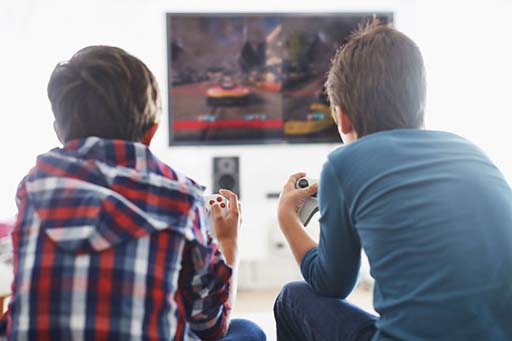2.2 The good, the bad and the ugly
Although Daphne Bavelier suggests that video games can be extremely popular and supportive to children and their learning, not everyone takes this view. Since it is still early days in terms of the volume of research, there are as yet no definitive answers.
Consider some of the psychological evidence around the positive and negative aspects of gaming from an article The positive and negative effects of video games [Tip: hold Ctrl and click a link to open it in a new tab. (Hide tip)] focused on younger children (three to six years old), from the Raise Smart Kid website.
Positive aspects may include:
- developing children’s problem-solving and logical thinking
- supporting hand–eye coordination, fine motor and spatial skills
- encouraging quick thinking and decision making
- stimulating memory and concentration and the ability to engage in multitasking.
Negative aspects may include:
- screen time binging is bad for the eyes
- violent video games are likely to increase aggressive thoughts, feelings and behaviours
- frequent and prolonged playing of video games can increase attention problems and distractibility
- immersive video games, especially those with virtual reality and 3D elements can encourage children to confused reality with fantasy.

